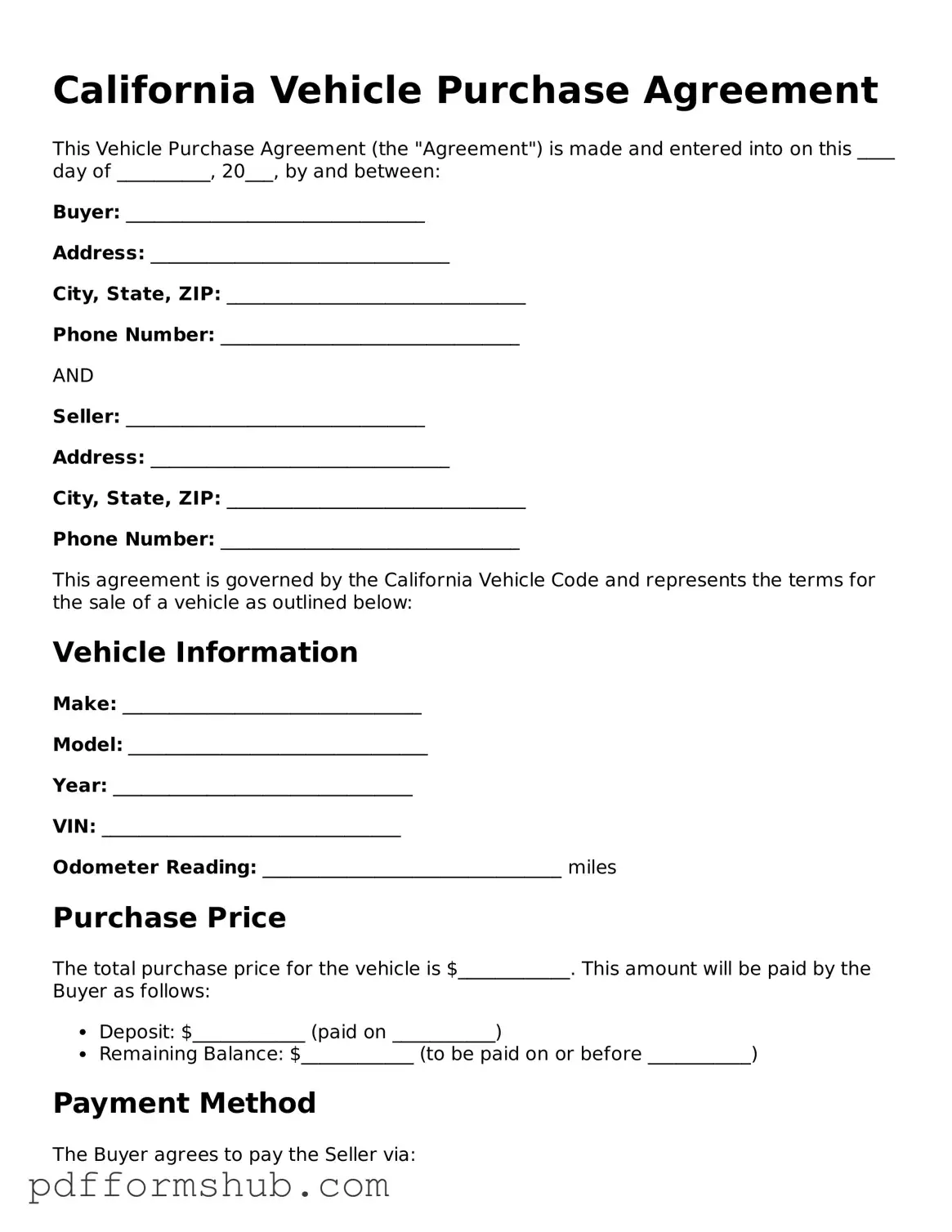Attorney-Verified Vehicle Purchase Agreement Form for California State
The California Vehicle Purchase Agreement form is a legal document that outlines the terms and conditions of a vehicle sale between a buyer and a seller. This agreement protects both parties by detailing the vehicle's specifics, the purchase price, and any additional terms of the sale. Understanding this form is essential for a smooth transaction; fill it out by clicking the button below.
Customize Form

Attorney-Verified Vehicle Purchase Agreement Form for California State
Customize Form

Customize Form
or
Free PDF Form
Short deadline? Complete this form now
Complete Vehicle Purchase Agreement online without printing hassles.